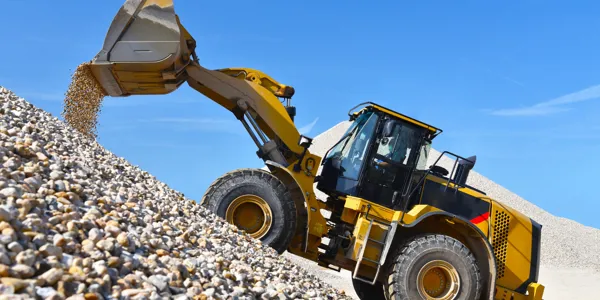Aggregates levy update
Aggregates levy is a tax levied on the commercial exploitation of rock, sand and gravel in the UK. It is currently charged at £2 per tonne. There are a number of changes that have been recently implemented or are in the pipeline.

1. Rate increase
The rate of aggregates levy has been frozen at £2 per tonne since 2009. It is increasing to £2.03 per tonne with effect from 1 April 2024, and will be subject to annual RPI increases thereafter.
2. October 2023 changes
Two changes were introduced with effect from 1 October 2023.
- Aggregate which is returned to the site from which it was won is no longer outside the scope of aggregates levy unless it is for an agriculture or forestry business, or for the purposes of winning aggregate from a quarry. This change mainly affects large construction and infrastructure projects such as electricity transmission lines, gas networks, wind farms, reservoirs, and road and rail construction projects. Where a site uses local ‘borrow pits’ to source aggregate within the development site for construction purposes such as building temporary haulage roads, bunds, and other features they will now need to account for aggregates levy on material used from 1 October 2023.
- The aggregates levy exemption for material arising from building construction, street works and road and rail construction has been simplified so that any aggregate which is extracted lawfully and unavoidably from the construction site for the purposes of the construction and not to obtain the aggregate itself is exempt. This should significantly reduce complexity and uncertainty for construction activities in all sectors.
3. Devolution of aggregates levy to Scotland
A bill is currently being considered by the Scottish Parliament for the devolution of aggregates levy to Scotland with effect from 1 April 2026.
The proposed structure of Scottish Aggregates Tax is broadly similar to aggregates levy to avoid unintended consequences caused by differences in treatment within the UK, and so that it can be easily understood by taxpayers who are used to dealing with aggregates levy.
One of the most significant features that affected businesses will need to adapt to is the movement of aggregate into and out of Scotland. For registered taxpayers who exploit aggregate in Scotland and send it to a customer in the rest of the UK, they will need to claim a Scottish Aggregates Tax credit, and the UK customer will need to declare UK aggregates levy as they would for aggregate which is imported from outside of the UK. For aggregates producers in the rest of the UK sending aggregate to Scotland, they will need to claim a UK aggregates levy credit and they will also need to register for Scottish Aggregates Tax and file returns declaring the Scottish Aggregates Tax due.
And finally, not a change, but a ‘Did you know?’. Did you know that the territorial scope of aggregates levy is broader than most UK taxes?
The territorial scope of aggregates levy encompasses both the UK and UK waters, which are those areas of the Continental Shelf where the UK has rights over the seabed. This means that aggregates levy is highly unusual in that material can be brought into UK waters and used for construction purposes, triggering an aggregates levy liability, without being imported or subject to other UK taxes. Those most likely to be affected are those involved in construction activities associated with development of offshore wind farms, offshore oil and gas, and laying cables on the seabed.
How can we help?
Our environmental tax team specialise in dealing with aggregates levy compliance and HMRC enquiries. If you need help understanding how aggregates levy applies to your business please do get in touch.
Approval code: NTEH7032481
By necessity, this briefing can only provide a short overview and it is essential to seek professional advice before applying the contents of this article. This briefing does not constitute advice nor a recommendation relating to the acquisition or disposal of investments. No responsibility can be taken for any loss arising from action taken or refrained from on the basis of this publication.
Tax legislation
Tax legislation is that prevailing at the time, is subject to change without notice and depends on individual circumstances. You should always seek appropriate tax advice before making decisions. HMRC Tax Year 2023/24.




